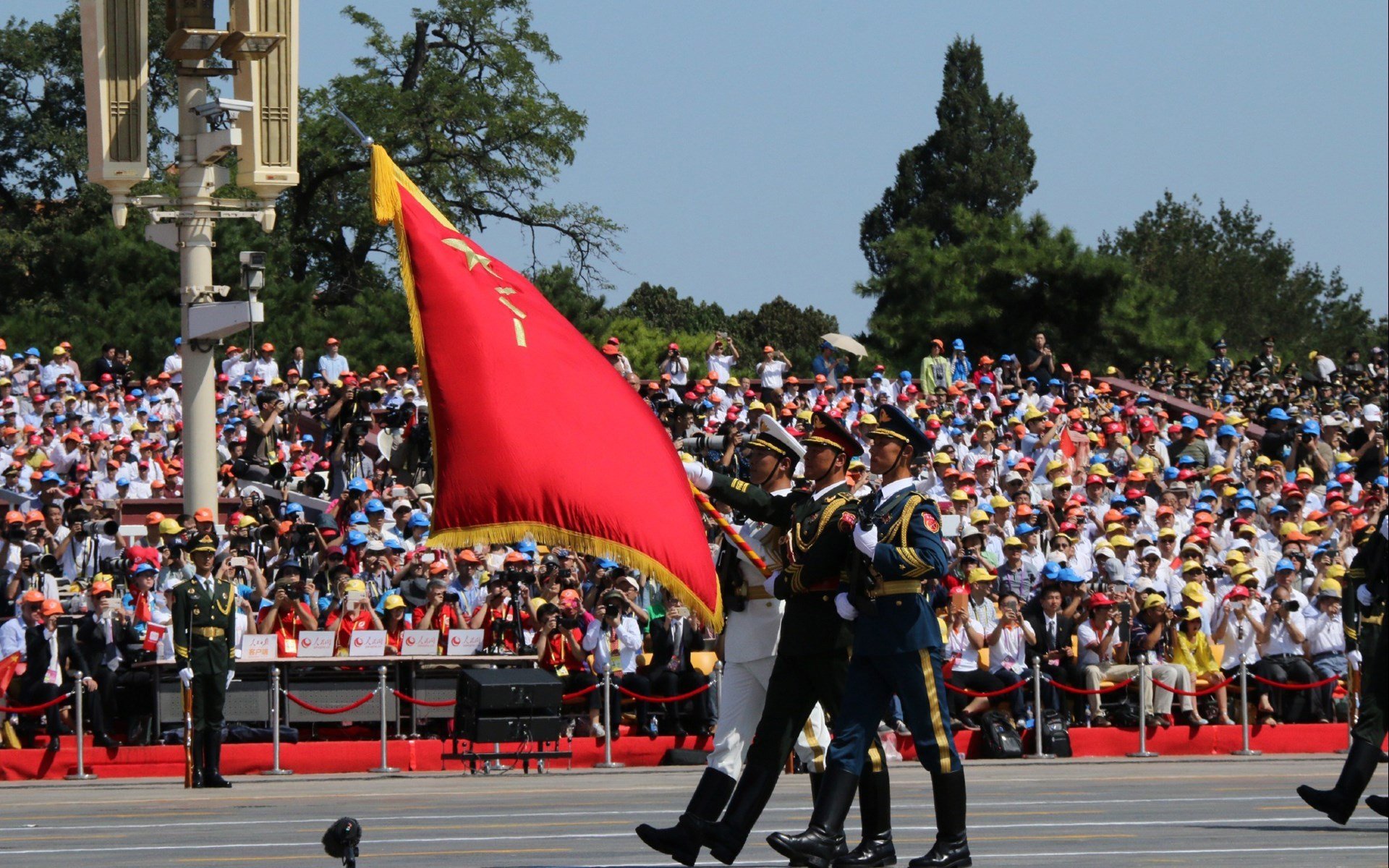九上英语《第一次月考知识归纳》
- 教育
- 14小时前
- 2255
Unit 1 How can we become good learners?
【短语归纳】
1.haveconversationwithsb.同某人谈话
2.too…to...太.....而不能…
3.thesecretto........的秘诀
4.beafraidofdoingsth./beafraidtodo害怕做某事
5.lookup查阅
6.repeat out loud大声跟读
7.makemistakesin在....方面犯错误
8.connect.....with...把.....与.....连接/联系起来
9.getbored感到厌烦
10.bestressedout焦虑不安的
11. pay attention to注意;关注
12. depend on取决于;依靠
13.theabilitytodosth.做某事的能力
【单元知识点】
1.by+doing通过....方式(by是介词,后面要跟动名词,也就是动词的ing形式)
2.talkabout谈论,议论,讨论
Thestudentsoftentalkaboutmoviesafterclass.
学生们常常在课后讨论电影。
talktosb.=talkwithsb.和某人说话
3.提建议的句子:
①What/ how about +doing sth.?做..怎么样?(about后面要用动词的ing形式)
如: What/ How about going shopping?
②Whydon’tyou+dosth.?你为什么不做...?(注意:标红的部分用的是动词的原型)
如: Why don’t you go shopping?
③Whynot+dosth.?为什么不做…?(注意:标红的部分用的是动词的原型)
如:Why not go shopping?
④Let’s+dosth.让我们做... 吧。(注意:标红的部分用的是动词的原型)
如:Let’s go shopping.
⑤Shallwe/I+dosth.?我们/我... 好吗?
如:Shall we/ I go shopping?
4.a lot许多,常用于句末。
如:I eat a lot.我吃了许多。
5.too...to…太...而不能…
常用的句型:too+形容词/副词+todosth.
如: I’m too tired to say anything.我太累了,什么都不想说。
6. aloud,loud与 loudly的用法,三个词都与“大声”或“响亮”有关。
①aloud是副词,通常放在动词之后。
②loud可作形容词或副词。用作副词时,常与speak、talk、laugh等动词连用,多用于比较级,须放在动词之后。
如:She told us to speak a little loud.她让我们说大声一点。
③loudly是副词,与1oud同义,有时两者可替换使用,可位于动词之前或之后。
如He does not talk loudly or laugh loudly in public.她不当众大声谈笑。
7.notatall一点也不,根本不
如:I like milk very much,I don’t like coffee at all.我非常喜欢牛奶,我一点也不喜欢咖啡。
not经常可以和助动词结合在一起,at all则放在句尾。
8.be/getexcitedaboutsth.对...感兴奋
9.①endupdoingsth.终止做某事,结束做某事
如:The party ended up singing.晚会以唱歌而结束。
②endupwithsth.....以…结束(注意介词with)
如:The party ended up with her singing.晚会以她的歌唱而告终。
10.firstofall首先(这个短语可用在作文中,使得文章有层次)
11. also 也、而且(用于肯定句)常在句子的中间;either也(用于否定句)常在句末;too也(用于肯定句)常在句末。
它们三个的区分要清楚,尤其要知道用在什么句子中以及各自的位置。
12.makemistakes犯错
如:I often make mistakes我经常犯错。
makeamistake犯一个错误
如:I have made a mistake.我已经犯了一个错误。
13. laugh at sb.笑话;取笑(某人)(常见短语)
如: Don’t laugh at me!不要取笑我!
14.takenotes做笔记,做记录
15.enjoydoingsth.喜欢做...,乐意做...
如:She enjoys playing football.她喜欢踢足球。
enjoyoneself过得愉快
如:He enjoyed himself. 他过得愉快。
16.nativespeaker说本族语的人
17.makeup组成、构成
18.oneofthe+形容词最高级)+名词复数形式 其中之一(这一题主要考两点,一是最高级,一是名词复数)
如:She is one of the most popular teachers.她是最受欢迎的教师之一。
19.It’s+形容词+(forsb.)todosth.(对于某人来说)做某事...
如:It’s difficult (for me)to study English.对于我来说学习英语太难了。(句中的it是形式主语,真正的主语是to study English)
20. practice doing练习做某事(注意:practice后面接动名词)
如:She often practices speaking English.她经常练习说英语。
21.decidetodosth.决定做某事
decide后面跟的是不定时,也就是todo.
如:LiLei has decided to go to BeiJing.李雷已经决定去北京。
22. unless 假如不,除非:引导条件状语从句。
如:You will fail unless you work hard.假如你不努力你会失败。
23.dealwith处理
如:Idealtwithalotofproblems.
24.worryaboutsb./sth.担心某人/某事
如:Mother worried about his son just now.妈妈刚才担心他的儿子。
25.beangrywithsb.对某人生气
26.perhaps=maybe也许
27.goby(时间)过去.
如:Two years went by.两年过去了。
28.seesb./sth.doing看见某人正在做某事(如果是看到正在做什么,要用动词ing形式)
seesb./sth. do看见某人在做某事
如:She saw him drawing a picture in the classroom.她看见他正在教室里画画。
29.eachother彼此
30.regard...as....把…看作为...
如:The boys regarded Anna as a fool.这些男孩把安娜看成傻瓜。
31.too many 许多,修饰可数名词,如: too many girls。
toomuch许多,修饰不可数名词,如:toomuchmilk
要区分too many和too much只要记住他们修饰什么词就可以了。
muchtoo太,修饰形容词,如:muchtoobeautiful
too much和much too意思不同,不要混淆它们的意思,这种单词容易出解析题。
32.change...into...将...变为...
33.withthehelpofsb.=withone’shelp在某人的帮助下(注意介词of和with)
如:with the help of LiLei = with LiLei’s help在李雷的帮助下
34.compare...to..把...与...相比
compare …with…将....与…做比较
35.instead代替,用在句末,副词
insteadofsth./doingsth.代替,而不是(of后面跟动词,要用动名词形式,也就是动词的ing形式)
如:I will go instead of you.我将代替你去。
Unit 2 I think that mooncakes are delicious!
【短语归纳】
1.theLanternFestival元宵节
2.theDragonBoatFestival端午节
3.theWaterFestival泼水节
4.befuntowatch看着很有意思
5.eatfivemealsaday每天吃五餐
б.puton fivepounds体重增加了五磅
7.intwo weeks两星期之后
8.besimilarto...与…相似
9. end up最终成为;最后处于
10.sharesth.withsb.与......分享.....
11.asaresult结果
12.one…,theother…(两者中的)一个....,另一个……
13.takesb.outfordinner带某人出去吃饭
14.dressup乔装打扮
15.hauntedhouse鬼屋
16.callout大声呼喊
17.remindsb.of sth.使某人想起
18.soundlike听起来像
19.treatsb.with sth.用......对待某人
20.thebeginningofnewli新生命的开始
【重点句子】
1. I think that they’re fun to watch.我认为它们看着很有意思。
2.Whatdoyoulikeabout...?
What do you like best about the Dragon Boat Festival?对于端午节,你最喜欢什么?
3.Whatagreatday!多么美好的一天!
4.Iwonderif...
I wonder if it’s similar to the Water Festival of the Dai people in Yunnan Province.我想知道它是否与云南傣族的泼水节相似。
5.How+adj./adv.+主+谓!
Howfantasticthedragonboatteamswere!龙舟队多棒啊!
6.Whatdo/does+sb.+thinkofsth.?
What does Wu Yu think of this festival?吴宇觉得这个节日怎么样?
【单元知识点】
1. What + a(n)形容词+可数名词的单数形式(+主语+谓语+其他)!多.......!
2. How +形容词/副词(+主语+谓语+其他)!多么.....!
3.begoingto…将要/打算....
4.in+时间段 .....后
5. give sb. sth.给某人某物;把某物给某人
6.plantodosth.计划做某事
7.refusetodosth.拒绝做某事
8.one of+名词复数形式....之一
【语法归纳】
一、宾语从句
宾语从句在复合句中作主句的宾语。三大考点:引导词、时态和语序。
①由“连接词+主语+谓语”构成。
②由that引导表示陈述意义,“that ”可省略。
He says (that) he is at home.他说他在家里。
③由“if,whether”引导表示一般疑问意义(带有是否、己否、对否等)
I don’t know if/ whether Wei Hua likes fish.我不知道韦华是否喜欢鱼。
④由“连接代词、连接副词(疑问词)”引导表示特殊疑问意义。
Do you know what he wants to buy?你知道他想要买什么吗?
⑤从句时态要与主句一致
当主句是一般现在时,从句根据情况使用任何时态;
当主句是一般过去时,从句应使用过去某时态(一般过去时,过去进行时,过去将来时,过去完成时)。
He said (that)he was at home.他说他在家里。
I didn’t know that she was singing now.我不知道她正在唱歌。
She wanted to know if I had finished my homework.她想要知道我是否已经完成了我的作业。
Didyouknowwhenhewouldbeback?你知道他将会什么时候回来吗?
二、感叹句
感叹句是表达喜、怒、哀、乐以及惊奇、惊讶等强烈感情的句子。感叹句通常由what 或how引导。现分述如下:
由what 引导的感叹句,其句子结构可分为以下三种:
1.可用句型:“What + a/an+形容词十可数名词单数(+主语+谓语+其他)!”。如:
What a nice present it is!这是一件多么好的礼物啊!
What an interesting book it is!这是一本多么有趣的书啊!
2.可用句型:“What +形容词十可数名词复数(+主语+谓语+其他)!”。如:
What beautiful flowers they are!多么漂亮的花啊!
What good children they are!他们是多么好的孩子啊!
3.可用句型:“What +形容词+不可数名词(+主语+谓语+其他)!”。如:
What fine weather it is today!今天天气多好啊!
What important news it is!多重要的新闻啊!
由how引导的感叹句,其句子结构也分为三种:
1.可用句型:“How +形容词/副词(+主语+谓语+其他)!”。如:
How careful she is!她多么细心啊!
How fast he runs!他跑得多快啊!
2.可用句型:“How +形容词十a/an 十可数名词单数(+主语+谓语)!”。如:
Howbeautifulagirlsheis!她是个多么漂亮的姑娘啊!
3.可用句型:“How +主语+谓语!”。
如:How time flies!光阴似箭!
由what 引导的感叹句与由how 引导的感叹句有时可以转换,但句中部分单词的顺序要有所变化。如:
Howbeautifulagirlsheis!=Whatabeautifulgirlsheis!
Whatdeliciouscakestheseare!=Howdeliciousthesecakesare!
冀教版
Unit 1 Stay healthy
一、Key words(重点单词)
1.stomach n.胃,腹部
2.regret v.后悔
3.feve n.发烧
4examination n.检查,考试
5.pain n.疼痛
6.pardon v.&n.原谅
7.dentist n.牙医
8.x-ray n.X光,X射线
9.refuse v.拒绝
10.toothache. n.牙痛
11.German adj.德国的;n.德国人,德语
12.corn. n.玉米
13.bean n.豆子
14.Asia n.亚洲
Asian. adj.亚洲的
Africa n.非洲
African adj.非洲的
America n.美洲
American adj.美洲的
Europe n.欧洲
European adj.欧洲的
15.include v.包括,包含
16.smoke n&v.烟,吸烟
17.harmful adj.有害的
18.public adj.公共的,大众的
19.law n.法律
20.whenever conj.无论何时
21.risk n.危险,风险
22.somebody pron.有人,某人
23.control v.控制,管理,支配
24.telephone n.电话
25.hers pron.她的(物品)
26.cheer n&v.欢呼,喝彩
27.kick v.踢
28.pity n.遗憾
29.sleepy adj.困倦的,瞌睡的
30.mention v.提及,写到
二、key phrases(重点短语)
1.regretdoingsth:后悔做了某事
2.get/haveafever 发烧
3.takeanX-ray照X光片
4.gotothedentist看牙医
5.havenochoicebuttodo别无选择只能去做某事
6.berichin…富含....
7.millionsof...数以百万的…
8.as a result of由于,作为…的结果
9. takearisktodosth.冒险去做某事
10.getintothehabitof…养成...的习惯
11.stayawayfrom…远离…
12.beunabletodosth.不能去做某事
13.focuson集中于,致力于
14.takeout取出,拿出
15.sothat为了,以便
三、Grammar(语法)
情态动词的用法
情态动词: can/could;may/might;should;must,need.
1.情动+V原形
eg:Hecan playfootball.
2.注意情态动词must的一般疑问句:
eg:-MustIfinishmyhomeworknow?
---Yes, youmust.
---No, youneedn’t./No, youdon’thaveto.(备注:mustnot=mustn’t禁止)
Unit 2 Greatpeople
一、Keywords(重点单词)
1.meaning n.意思,意义
2.dialogue n.对话,对白
3.success n.成功
successful adj.成功的,有成就的
successfully adv.成功地
succeed v.取得成功
4.missing adj.缺少的,丢失的
5.survey n&v.调查
6.neighbour n.邻居
7.solve v.解决
8.pioneer n.先锋,先驱
9.introduction n.介绍,引进
10.leader n.领导人,领袖
11.produce v.生产,出产
12.super adj.超级的
13.writer n.作者,作家
14.blind adj.失明的,瞎的
15.deaf adj.失聪的,聋的
16.illness n.疾病
17.ability n.能力
18.progress n.进步,进展.
19.remain v.仍然是,保持不变
20.decision n.决定
21.bad--worse--worst adj.坏的,糟糕的
22.government n.政府
23.medical adj.医疗的,医学的
24.anybody pron.任何人
25.chemistry n.化学
二、key phrases(重点短语)
1.succeed in doing sth.在..... 取得成功;顺利完成
2.goondoingsth.继续做某事
3.inthefieldof...在....领域
4.passaway去世,逝世
5.sincethen自那以后
6.make(alotof)progress取得(巨大)进步
7.bewellknownfor=befamousfor因..而闻名,众所周知
8.makeadecision做一个决定/makedecisions做决定
9.firstaid急救
10.setup建立
11.basedon以...为基础,基于....
三、Grammar(语法)
状语从句
1.when/after/before引导的时间状语从句;
2.if引导的条件状语从句(主将从现);
3.where引导的地点状语从句;
4.because引导的原因张语从句;
5.though/although/even if 引导的让步状语从句。
外研社版
Module1Wondersoftheworld
【短语归纳】
1.wondersoftheworld世界奇观
naturalwonders自然奇观
man-madewonders人造奇观
2.join in参加;加入(活动)= take part in
3.I’mnotsure我不确信
4.agreewithsb.同意某人的看法
sb. agreewithsth.某人适应(食物、气候)
agreetodosth同意做某事
agreetosth(plan/decision/suggestion)同意/赞成
agreeonsth.(plan)在…方面意见一致
5.ontheeasterncoastof在...的东海岸
6. in one’s opinion据某人看来;按某人的意见
7.morethan=over多于,超过
8.produceelectricity供电
9. millions of数百万的;数以百万计的
10.wouldliketodosth.=wanttodo想做某事
wouldlikesb.todosth.想要某人做某事
11.earlymorning大清早
12.becomegrey变成灰色
13.getoutof从...出来
14. go through 意为“穿过,强调从物体内部穿过;从头至尾的练习
15.fallaway突然向下倾斜
16. look over从(某物上面)看过去;仔细检查
lookacross眺望
look down to俯视;向下看
17.ontopof在…的顶部
18.atthebottomof在....的底部
19.onbothsides在两边
20.befamousfor意为“以...而闻名”
21.doaninterview做采访
doaninterviewwithsb.采访某人
22.drawapictureof画一副...的图画
23. go down下去;下沉;坠落
24.waitfor等候
25.dozensof许多
26. in height高度;在高度上
【用法集萃】
1.agreewithsb.同意某人
agreetodosth.同意做某事
2.wouldliketodosth.想要做某事
3.in+一段时间在...(多长时间)之后,常用于回答“Howsoon”的提问
4.havebeen/goneto以及havebeenin的区别
5.becauseof+名词 因为....
6.withoutdoingsth.没做某事
7.beafraidofdoingsth./beafraidtodosth.害怕做某事
8.oneof+the形容词最高级+可数名词复数 最…的…之一
9.lookforwardtodoingsth.盼望做某事
Module2Public holidays
【短语归纳】
1.sincethen从那以后
2.haveathree-dayholiday有三天的假期
3.publicholiday公众假日
4.haveoneday off有一天的休息时间
5.allkindsof各种各样的
6.takeavacation/spendavacation度假
介词短语:on/for vacation
Eg: HeisgoingtotakeavacationtoBeijing.=HeisgoingtoBeijing for vacation.
7.haveapicnic去野餐
Eg: Theyaregoingtohaveapicnicinthepark.
8. have fun = have a good/great time = enjoy oneself玩得开心;过得愉快
havefundoingsth.高兴做某事
9.playmusic演奏音乐
10.gosomewhereinteresting去有趣的地方
11.assoonas一…就…,引导时间状语从句(主将从现)
IwillcallyouassoonasIgetthere.
12.makeshortspeeches做简短的演讲
13.givethanksfor为某事/某物而感谢
Igavethanksforyourhelp.
givethankstosb.向某人表示感谢
Theygavethankstome.
14.teachsb.howtodosth.教某人如何做某事
Tomtaughtmehowtorideabike.
15.growcorn种植玉米
16.laythetable摆设餐桌
17.tellastory/tellstories讲故事
tellalie撒谎
tellajoke讲笑话
18. as well也,位于肯定句句末。
Shelikesswimming.Ilikeswimmingaswell.
19. plenty of大量的,充足的,后接可数名词复数或不可数名词。
20.makemuchprogress取得很大的进步
makeprogressin(doing)sth.在(做)某事方面取得进步
21.getback回来=comeback,goback,return
22. think about考虑;思考
You always think about eating.你总是想着吃。
23.makeaplanfor为.....制定计划
Let’smakeaplanfortheparty.
24.wakesb.up叫醒某人
getoutofbed起床
25.fallasleep睡着
26.indifferentway以不同的方式
PeoplecelebrateSpringFestivalindifferentways.
27.countdown倒数
Ialwayscountdownthedaysuntiltheendoftheterm.
28. depend on依靠,依赖;取决于
Wecan’tdependonourparents.
Your success depends on whether you work hard or not.你的成功取决于你是否努力工作。
depend on sbto do sth指望某人做某事
Weshouldn’t dependonhimtofinishthework.
29.gettogether聚会
30.apart from除.... 以外(还有),相当于besides。
Apart from the cost, it will take a lot of time.除了花费外,它还需要许多时间。
【用法集萃】
1.have+一段时间+off放多长时间的假
2.复合不定代词/复合不定副词+形容词
3.havefundoingsth.做某事很开心
4.enjoyoneself玩得开心
5.watchsb.do/doingsth.观看某人做正在做某事
6.teachsb.howtodosth.教某人如何做某事
7.It’sbettertodosth.最好做某事
8.Don’t you …(否定疑问句)难道....吗?
9.spend …doing…花费…做…
Module3Heroes
【短语归纳】
1.choosetodosth.选择做某事
WechoosetojointheEnglishclub.
2.tellsb.aboutsth.告诉某人关于某事
Pleasetellmeaboutyourvacationplan.
3.oneofthe+形容词最高级+可数名词的复数形式 最....的….之一
SheisoneofthemostfamoussingersinChina.
4.intheworld在世界上
5.playtabletennis打乒乓球
6.stoppingdoingsth.停止正在做的事
stoptodosth.停下去做另外一件事
Theystoppedworkinganddecidedtohavearest.
Hestoppedtotalkwithme.
7.attenduniversityabroad出国留学
attendameeting参加一次会议
8. Whatever she does, she never gives .无论她做什么,她从不放弃。
whatever=nomatterwhat无论什么
Take whatever you want.你想要什么就拿什么。
giveupdoingsth.=stopdoingsth.放弃做某事
Youshouldgiveupsmokingatonce.
9.haveastrongwill有坚强的意志
10. as well as 不但…而且…;还
ShecanspeakEnglishaswellas Japanese.
aswellas同...一样好,同级比较的结构
Heplaysthepianoaswellasyou.
11. She is simply the best. 她确实是最好的。
12.diefor为…而死
Hediedforthecountry.
13. take care of = look after照顾;护理
takegoodcareof=lookafter well好好照顾
14. the +形容词,表示某类人,表复数意义,若用作主语,谓语动词用复数形式。
therich富人
thepoor穷人
thesick病人
theold老人
theyoung年轻人
theweak弱者
thestrong强者
theblind失明的人
thewounded伤员
The rich get richer and the poor get poorer.富者愈富,贫者愈贫。
15. so that以便;为的是(从句中出现情态动词,so that引导的是目的状语从句)
Hegotupearlysothathecouldcatchtheearlybus.
Hegotupearlysothathecaughttheearlybus.
(从句中用的是行为动词的过去时,sothat引导的是结果状语从句)
16.invent v.发明
invention n.发明物
inventor n.发明家
Canyoutellmewhoinventedthetelephone?
Hewantstobeaninventorwhenhegrowsup.
Whatdoyouthinkisthemostimportantinventions?
17.atthattime那时候,在那时
18. on one’s own = by oneself=alone独自;单独
Thegirlcanfinishtheworkonherown/byherself.
19.It’susefulforsb.todosth.做某事对某人有用
It’susefulforyoutoknowtherules.
beusefultosb.对某人有用
Thisbookisusefultoyoungpeople.
beusefulfor(doing)sth.某事/某物有用
DictionariesareusefulforlearningEnglish.
20.withoutdoingsth.没有做某事(做伴随状语)
withoutsth.没有某物
Hewenttoschoolwithouteatingbreakfast.
Wewentoutwithoutanymoney.
21.managetodosth.设法做成某事
Hemanagedtoavoidanaccident.
22.operate v.做手术 n.operation手术
operateon+sb./某部位
Thedoctorisoperatingonaboy/her leg.
doanoperationonsb.给某人做手术
Thedoctorisdoinganoperationonagirl.
23.continuedoingsth.继续做原来的事
continuetodosth.继续做另一件事
HecontinuedreadingLessonTen.
Theycontinuedtalkingafterthemeal.
AfterreadingLessonNine,hecontinuedtoreadLessonTen.
24. in the end = at last = finally最后;终于
Intheend, hefinishedtheworkontime.
25. die of因…而死(内因),后跟hunger, cold, ilness, a fever等名词。
Themandiedofhisillness.
die from由于…而死(外因),后跟wound, accident, over work, carelessness等名词。The soldier died from his wound.
26.make宾语宾语补足语(名词/形容词)
We made him our monitor.我们选他当我们的班长。
Thepresentsmadeusexcited.
27. take off(飞机等)起飞;脱下(衣服等)
Theplanetookoffatnine.
He took off his wet shoes.他脱下了浸湿的鞋子。
28. around the world = all over the world世界各地;全世界
29.inneedof需要 needn.
ThedoctortoldmeIwasinneedofagooddoctor.
30.beproudof为…感到自豪
Theyareproudoftheirbravesoldiers.
31. set off out =start off out出发;动身
setofffor动身/出发去…
Theysetoffforhomethen.
32.getaway离开,逃离
Ihopetogetawayearlyinthemorning.
33.learnfrom…向…学习
learnsth.fromsb.向某人学习某事
Let’slearnfromLeiFeng.
IamlearningEnglishfromTom.
34.onone’swayhome在某人回家的路上
Iboughtabookonmywayhome.
35.saveone’slife挽救某人的生命
Thedoctortriedhisbesttosavetheboy’slife.
36.onceagain再一次
【用法集萃】
1.oneof+the+形容词最高级+可数名词复数 最.....的…..之一
2.tellsb.aboutsth.告诉某人关于某事
3.startdoingsth.开始做某事
4.begintodosth.开始做某事
5.stopdoingsth.停止做某事
6.onone’sown独自一人
7.managetodosth.设法完成某事
8.both..and.... ...和...两者都
9.wanttodosth.想做某事
10.makesb/sth.+形容词 使某人某物...
11.trytodosth.尽力干某事
12.waitforsb.todosth.等待某人做某事
沪教版
Unit1Wisemeninhistory
一、必记单词
golden adj. 金的;金色的
Olympics n.奥运会
agreement n. 同意;应允
pot n.罐
doubtv不能肯定,对...没把握
real adj. 真的;正宗的
truthn.真相,实情
seem v.好像;似乎
solve v. 解决;处理
fill v.装满,注满
bowl n. 碗;盆
brave adj. 勇敢的;无畏的
metal n.金属
certain adj.确定的;肯定的
prison n.监狱;牢狱
hit v. (hit, hit)(用手或器具)击;打
correct adj.准确无误的,正确的
mistake n.错误
less det. (不可数名词连用)较少的;更少的
二、常考短语
inancientGreece在古希腊
(be)happywith(对某人或事物)满意的=bepleased/satisfiedwith
fill...with…用...把…装满
thinkabout=consider考虑,思考
be fill with=be full of充满;装满
runover溢出
gostraightto“直奔,直接…”
each other 互相;彼此
asksb.forsth.向某人要某物
one...theother...一个…另一个...
sendsb.toprison把某人关进监狱
tellthetruth说实话
make sure 确保;设法保证
somethingelse别的东西
both..and.......和.....都....
payattentionto(to为介词)
leave sb. alone不打扰某人;不惊动某人(leave me alone)
not...anylonger=nolonger
sendsth.tosb.=sendsb.sth.把某物寄/送给某人
bemadeof看得见的原材料 由...制成
cut up切割开;切碎
bemadefrom看不见的原材料 由....制成
take...off 领走;带走;使....离开
bemadeby+sb.被某人制成
atthebeginningof在....的开头
三、常用句型
1.as…asonecan尽可能,相当于as...aspossible
2.hit sb. in/on the+身体部位,打某人的某个部位(身体部位较硬或凸起,用on;部位较软或下凹,用in)
3.oneofthe+adj最高级+可数名词复数,最....的….之一
4.trytodosth.试图做某事,尽力做某事
5.itisbelievedthat....
6.be(not)allowedtodosth.(不)被允许做某事
7.get...to dosth.让/使....做某事
8.starttodosth.开始做某事
四、语法:反意疑问句及句子的类型
一、反意疑问句:
1、含义:反意疑问句又叫特殊疑问句,它是在陈述句之后附加一个简短的问句,对陈述句所叙述的事实提出疑问或征求意见。
2、构成:由两部分构成,前一部分是一个陈述句,后一部分是一个简略的疑问句。遵循“前肯后否,前否后肯”的原则。前后两部分在人称、数、时态等方面必须保持一致。
附加疑问部分通常由两个词组成,第一个词是be动词、情态动词、或助动词,若是否定式,通常用上述词与not的缩略形式;第二个词是指代陈述部分主语的人称代词主格。
3.答语:遵循一个原则,不管问题的提法如何,只要事实是肯定的,就用“yes,肯定回答”;只要事实是否定的,就用“No,否定回答”。但在前否后肯的反意疑问句中,其答语与汉语翻译不同,Yes要翻译成“不”,No要翻译成“是”。
-Youwillneverforgethim, willyou?
-Yes,I will. 不,我会。
-No,No I won’t. 是的,我不会。
4.特殊用法:反意疑问句的特殊用法
1)陈述部分为Iam…时,疑问部分用aren’t.
例:Iamlate,aren’tI?
Iamateacher,aren’tI?
2)当陈述部分的主语是everyone, someone, anyone, no one, nobody等不定代词时,疑问部分的主语可用he,也可用they。
例:Noone wants todoit,doesn’the/don’tthey?
3)当陈述部分主语是something, everything, anything, nothing等表示物的不定代词时,附加疑问部分的主语要用it。
例:Everythingwillbeallright,won’tit?
Somethingmustbedonetoendthestrike,mustn’tit?
4)当陈述部分带有seldom, hardly, never, few, little, nothing, nobody等否定词时,疑问部分宜用肯定式。
例:Sheseldomgoestoschoollate,doesshe?
5)当陈述部分中有否定前缀或后缀的否定词时,疑问部分仍用否定式。
例:Shedislikesherboyfriend,doesn’tshe?
Sheis carelessinwriting,isn’tshe?
6)当陈述部分是一个祈使句时,不管是肯定还是否定,附加疑问部分一般用“will you”;当陈述部分以“Let’s...”开头,疑问部分用“shall we?”但以“Let us.. .”开头的,附加疑问部分常用“will you? ”
Let’shaveacupofChinese tea,shallwe?
Letus gotothesupermarket,willyou?
在肯定的祈使句后,还可以用“won’tyou.”
7)当陈述部分的主语是指示代词this, that 或these, those 时,附加疑问部分的主语分别用it或they。
This isyourbook, isn’tit?
8)当陈述部分是带有宾语从句的主从结构,疑问部分的助动词和主语应与主句的主谓要一致,当句中部分是“Ithink../Isuppse.../Ibelieve…”等结构时,疑问部分助动词主语则与that从句中的主、谓保持一致.
例:TheysaidthatIwasright,didn’t they?
Idon’tthinkyou havedoneit, haveyou?
9)当陈述部分的主语是动词不定式或动名词时,附加疑问词部分的主语是it。
Toworkhardisimportant, isn’tit?
10)陈述部分为there be 结构时,附加疑问部分中仍用there。
There’ssomethingwrong, isn’tthere?
11)当陈述部分带有usedto,附加疑问部分既可用usedn’t或didn’t的相应形式.
例:He usedn’t smoke, used he?
Hedidn’tusetosmoke, didhe?
12)当陈述部分是had better,疑问部分应用had/hadn’t;若陈述部分为would like.. 和would rather... ,附加疑祠部分座用wouldn’t ?
You’dbetter takeabustogothere,hadn’tyou?
You’dlikesometea,wouldn’tyou?
13)当陈述部分是感叹句,附加疑问部分则用否定式,且主语和感叹句主语要一致。
例:Whatalovelyday,isn’t it?
Whatagoodman,isn’the?
14)有关have
①当陈述部分的谓语是have/has,表示“有时,附加疑问部分既可用have/has的相应形式,也可用do/does的相应形式。
例:Shehastwosister,hasn’t/doesn’tshe?
②当陈述部分的谓语has/has,表示经历、遭受、得到、吃等其他含义时,疑问部分只用do/does的适当形式.
例:Heoften hasbreakfastatseven,doesn’the?
③当陈述部分的谓语动词包括have to/had t时,疑问部分通常用do/ does的不同形式。
She has to stay at home to look after her baby, doesn’t she?
15)当陈述部分的谓语动词含有can, may; shall, will would, ought, be,等助动词时,疑问部分用相同的助动词。
例:Youcan bethereby10o’clock,can’tyou?
Yououghtto followheradvice,oughtn’t/ shouldn’t you?
16)must的反义疑问句:陈述部分有must 的疑问句,疑问部分根据实际情祝而定。
A.must表示“应该”,其疑问部分用mustn’t (不应该)。
如:You must work hard next term, mustn’t you ?学期你应该努力学习,对吗?
B.must 表示“必须”,其疑问部分用needn’t (不必)。
如:They must finish the work today, needn’t they? 他们今天必须要完成这项工作,是吗?
C.陈述部分含情态动词mustn’t,表示“禁止”时,疑问部分就可以用must或may。
如:You mustn’t stop your car here, must you? (may you)你不能把车停在这地方,知道吗?
D.must 表示推测,其疑问部分必须与must 后面的主要动词相呼应。如:
①对现在动作或存在的情况的推测。
Youmustknowtheanswertotheexercise,don’tyou?你一定知道这项练习的答案,是不是?
That mustbeyourbed,isn’tit?那一定是你的床,是吗?
②对过去发生的动作或存在的情况的推测:句中陈述部分没有表示过去的时间状语,这时疑问部分中的动词就用现在完成时。(haven’t /hasn’t +主语)
Youmusthavetoldheraboutit,haven’t you?你一定把这事告诉她了,是吗?
17)当陈述部分为Iwish..时,疑问部分则用mayI?
IwishtogotoHefeitoseeyouoneday,may I?
I wishtouseyourpen,mayI?
18)当陈述部分含有状语从句时,附加疑问部分的主语、谓语应与主句的主、谓语一致。
WhenIgottoschool,the classeshadalreadybegun,hadn’tthey?
Whentheteacherspeaks,wehavetokeepquiet,don’twe?
总结:
1.在反意疑问句,前面的陈述句如果是肯定的形式,反意疑问句就要用否定的形式;前面的陈述句如果是否定的形式,反意疑问句就要用肯定的形式。
2.对于反意疑问句的回答,如果问句的前部分是肯定的,那么回答中的yes和no的意思就和汉语相同;如果问句的前部分是否定的,那么回答中的yes和no的意思就和汉语相反。
二.句子类型
英语中句子类型可分为:陈述句、疑问句、祈使句、感叹句四种。
陈述句:说明一个事实或者陈述说话人的看法。陈述句分为肯定陈述句和否定陈述句。
疑问句:①一般疑问句:以连系动词be、情态动词或助动词开头,通常用Yes或no进行回答。
②特殊疑问句:特殊疑问句以疑问词(组) who,what,which,how,how long 等开头,不能用yes或no回答。
③选择疑问句:提出两个(或多个)选项,两(多个)部分之间由“or”连接。
④反意疑问句:提出疑问或看法,询问对方是否赞同。
祈使句:表示请求、命令、叮嘱、号召等,谓语动词为动词原形。否定句多在句首加don’t。
注意:祈使句主语通常省略,但如果特别强调对方或表达某种情绪时可以有主语或加称呼。
感叹句:表示喜怒哀乐等情绪。
1.what引导的感叹句
(1)whata/an+单数可数名词
whatapity!
(2)whata/an+adj+单数可数名词(+主语+谓语)
whata beautifulparkitis!
2.how引导的感叹句
How+adj/adv(+主语+谓语)
Howwellshe dances!
Unit 2 Great minds
【重点】
1.mind
(1)mind作名词,表示头脑,大脑,心思
make up one’s mind下定决心
change one’s mind改变主意
(2)mind作动词,意为“介意”。
mind doing sth.
2.cosider及物动词,意为“认为,觉得”
consider sb. /sth.(as)sth.意为“认为某人/某物是…”
consider意为“考虑”,相当于think about,其后可接名词,代词,动词ing形式,从句或疑问词+不定式作宾语,但其后不能接跟动词不定式作宾语。
3. sense可数名词,意为“感觉;理解力;判断力”,通常用单数。
senseofhumour幽默感
humour不可数名词,意为“幽默”
humorous形容词,意为“滑稽有趣的;有幽默感的”。
4. receive指客观上“收到”,也可以表示“接待”和“遭受”。
accept用来表示主观上“接受”某人;“承认或赞同”某一看法或理论
invitation名词,意为“邀请;请柬”。后常接to sth.或to do sth.
MyfatherhadaninvitationtovisithisfriendinBeijing.
invite 动词,意为“邀请”。
invitesb.to…邀请某人去(某地/某一活动)
invitesb.todosth.邀请某人做某事
5. pleasure作为可数名词时,意为“乐事,快事”;作为不可数名词时,意为“高兴,快乐,愉快”。take pleasure in doing sth.意为“从做某事中获得乐趣”。
pleasant形容词,意为“令人愉快的,宜人的”。通常修饰物。
pleased形容词,意为“高兴地;愉快的”。be pleased with意为“对感到满意”;be pleased to do sth.意为“乐于做某事”
6. avoid 动词,意为“避免;避开”。
avoid doing sth. 意为“避免做某事”。另外,avoid 还可以接名词或代词作宾语。但avoid后不能接动词不定式作宾语。
Wegotupearlytoavoidmissingtheearlybus.
Shetriedtoavoidalltheproblems.
lecture 可数名词,意为“讲座;演讲”。give a lecture意为“讲课;演讲”;attend a lecture意为“听讲座”。
let sb. down意为“使/令某人失望”。
7.look for“寻找,寻求”,强调过程;
find “找到,发现”,强调结果;
find out表示经过调查、探听后发现。
8.(1) so+adj/adv+that“如此...以至于”(用来修饰形容词或副词)
(2)somany/few+复数可数名词+that
(3)somuch/little+不可数名词+that
9.(1)such+a/an+adj+可数名词单数+that“如此…以至于”(用来修饰名词)
=so+adj+a/an可数名词单数+that
(2)such+adj+复数可数名词+that
(3)such+adj.+不可数名词+that
10.(be)in trouble 意为“处于困境;倒霉”。
have trouble with…在…方面有麻烦/问题
have trouble(in)doing sth.做某事有困难
11.toomuch+不可数名词,意为“太多...”toomuchmoney
toomany+不可数名词复数,意为“太多...”too manybooks
muchtoo形容词,意为“太...”
sheismuchtoolazy.
12.one of+ the+形容词最高级+可数名词复数,表示“最....之一”。
Mozartisoneofthemostfamousmusiciansintheworld.
13.(1)spend,主语通常是人,sb. spend...on sth. sb spend …(in)doing sth,指花费时间或金钱。
(2)pay,主语通常是人,sb.paysforsth.指人为某物支付金钱
(3)take,主语通常是it。It takes sb. some time to do sth.指花费时间
(4)cost,主语通常是物,sth.costs(sb.)somemoney,指花费金钱
14. advice为不可数名词,意为“建议;意见”。常用表达:a/one piece of advice一条建议,some advice 一些建议
【拓展】
(1)advice的常用搭配
givesb.someadvice/givesomeadviceto给某人提一些建议
askforadvice征求意见
follow/takeone’sadvice接受某人的建议
(2)advise动词,意为“建议”,后接名词,代词或动词-ing形式作宾语,也可用于advise sb. (not) to do s结构,意为“建议某人(不要)做某事”。
She advised us to wait one more day.她建议我们再等一天。
15. Why don’t you..?=Why not do sth?通常用于“征求意见;提建议”,而不是表示疑问,意为“你(们)为什么不...?”
Whydon’tyouaskthepoliceman?=Whynotaskthepoliceman?
【拓展】
英语中表示建议的常用句型还有:
①What/Howabout..?....怎么样?
What/Howaboutgoingfishing?
②Wouldyoulike...?你想要...吗?
Wouldyoulikesomethingtodrink?
③Let’s...!让我们....吧!
Let’splayagame!
④You’better...你最好
You’dbetterstayathomeonsuchahotday.
16.(1)Can I/Could I...?意为“我可以... 吗?”常用来表示征求对方的许可。
其肯定回答多用: Sure. Certainly/Of course, you can。
否定答语常用:Sorry,youcan’t.
(2)message可数名词,意为“消息,音信”。
leaveamessage留言
takeamessage捎信,传话
message可数名词,意为“信息,消息,音信”,指从一个人传向另一个人的消息。
information不可数名词,意为“信息”,指通过阅读,调查,学习等方法获得的或收到的信息。
news不可数名词,意为“消息,新闻”,指报纸,电台或者电视等传播媒体向公众报道的消息。







